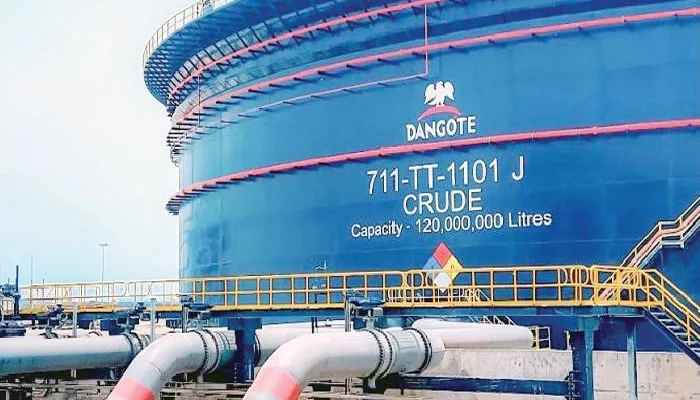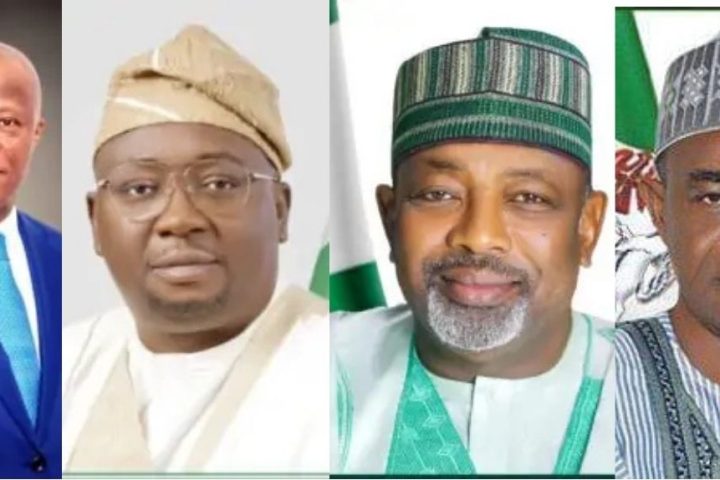The recent directive from the Nigerian National Petroleum Company Limited (NNPC) to oil marketers has sparked conversations about the future of fuel supply in Nigeria. The directive mandates that petrol importation be halted, with the Dangote Refinery positioned as the primary source for domestic petrol needs.
This decision has elicited mixed reactions among stakeholders, experts, and ordinary Nigerians, raising questions about the refinery’s capacity, logistics, and implications for the oil sector.
Join our WhatsApp ChannelA Bold Move by NNPC
In a high-level meeting in Abuja, NNPC’s Group CEO, Mele Kyari, emphasised the shift. “Today, NNPC does not import any product; we are taking only from domestic refineries,” he stated. While the statement was later clarified, the intent was clear: Dangote Refinery is now a central player in Nigeria’s fuel supply chain.
The refinery, with its advanced infrastructure, produces gasoline with a sulfur content below 10 ppm, significantly better than the previous standard of 500 ppm. However, the transition has not been without its challenges.
The Marketers’ Perspective
Oil marketers have expressed concerns over the decision, citing potential risks to their operations. A Lagos-based marketer, Sanni Yusuf, shared his apprehensions:
“Paying for fuel upfront, as Dangote requires, is a huge shift for us. Most of us operate on a post-delivery payment model. This new system could strain our cash flow.”
Another marketer, Chika Okeke, voiced doubts about the refinery’s ability to meet fluctuating demand:
“We’re not sure if Dangote Refinery can consistently supply all marketers across the country. Distribution logistics will also be a significant challenge.”
Nigerians React
For everyday Nigerians, the conversation revolves around the implications for fuel availability and prices. At a petrol station in Isolo, Lagos, driver Musa Ibrahim expressed hope: “If this means we’ll have cleaner fuel and no scarcity, then it’s good. But we don’t want higher prices. The government should ensure it is fair for us.”
In Yaba, student Aisha Abdulahi highlighted concerns about rural access: “Big cities might benefit, but what about villages? We’ve seen policies like this fail to reach remote areas.”
Expert Opinions
Experts in the energy sector have provided varied analyses of the situation. Professor Michael Obafemi, an energy economist at the University of Lagos, highlighted the strategic nature of the directive: “Centralising petrol supply through Dangote Refinery could stabilise the market and improve fuel quality. However, it’s critical to address the payment structure and ensure robust logistics.”
Energy consultant Bayo Alade emphasised the need for a phased approach: “The refinery’s capacity is impressive, but we must ensure it can handle surges in demand. A sudden reliance on one source can be risky.”
READ ALSO: Dangote Refinery Resumes U.S. Crude Import Amidst Domestic Supply Challenges
Meanwhile, international oil market analyst Sarah Johnson warned of potential monopolistic tendencies: “When one player dominates, it can lead to inefficiencies and price manipulation. Regulators must closely monitor Dangote Refinery’s operations.”
Addressing Operational Challenges
The shift to a payment-before-delivery model proposed by Dangote Refinery has sparked debates about its impact on smaller marketers. Many fear it could push them out of the market, leading to a concentration of power among larger firms.
NNPC, however, maintains that the move will promote accountability and efficiency. A spokesperson noted, “Advance payments ensure financial discipline and prevent defaults. We believe it will lead to a more sustainable fuel distribution system.”
The Road Ahead
While the directive underscores the government’s confidence in Dangote Refinery, the question remains whether it can deliver on its promise. Its infrastructure and quality standards are commendable, but issues such as logistics, payment terms, and the potential marginalisation of smaller marketers need urgent attention.
For ordinary Nigerians, the success of this policy will be judged by its tangible impact. Will it lower fuel prices, eliminate scarcity, and improve access across the country? As driver Musa Ibrahim aptly put it, “We just want fuel to be available and affordable. That’s all that matters.”
Emmanuel Ochayi is a journalist. He is a graduate of the University of Lagos, School of first choice and the nations pride. Emmanuel is keen on exploring writing angles in different areas, including Business, climate change, politics, Education, and others.


















Follow Us